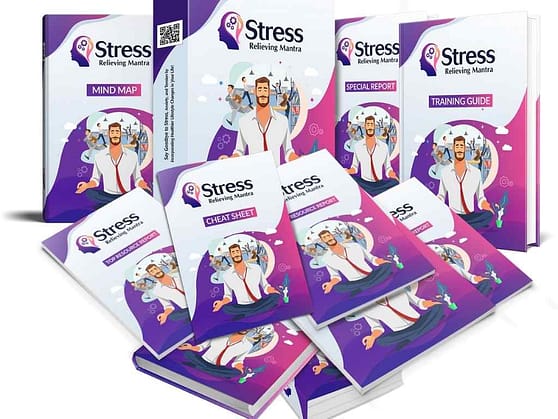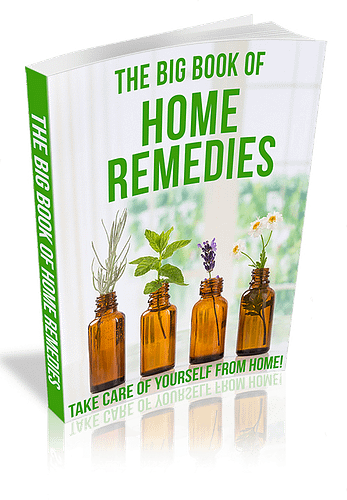Did you know that stress and anxiety can significantly impact your overall health?
Unfortunately, stress and anxiety are common, especially in today's fast-paced world.
These feelings can be caused by different factors, including lack of sleep, financial concerns, family issues, or a job with little personal fulfillment.
What is Stress?
"Stress" (as a negative reaction) is generally something that bothers us or becomes troublesome in our lives.
Some of the common forms of stress include:
- Job stress
- Family stress
- School stress
- Relationship stress
- Financial stress
- and so on.
These are specific aspects of life, so one can assume that it should be normal to experience some stress levels.
However, it is important to distinguish between everyday stress and abnormal stress.
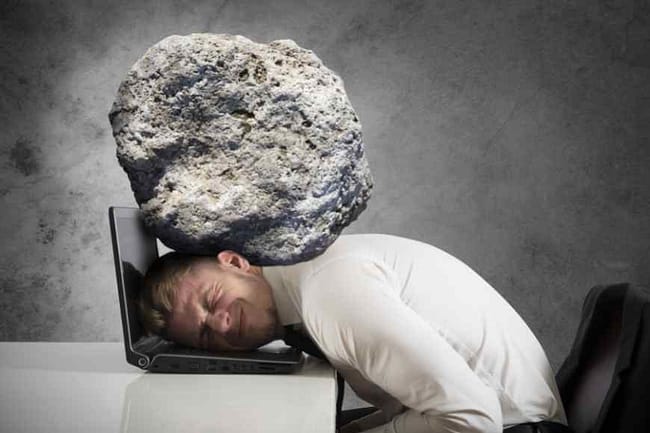
For example, some people experience tremendous stress but have found a way to manage or handle it effectively.
Others tend to ignore it or talk about the problem without doing anything about it.
The difference can be the undesirable consequences that can manifest from forgotten or unmanaged stress.
Some Common Symptoms of Stress :
- Fatigue
- Headaches
- Muscle aches
- Numbness in the extremities
- Depression
- Irritability
- Sleepiness
- Inability to concentrate
- Headaches
- Heart palpitations
- Digestive distress (bloating, heartburn, acid reflux, and diarrhea to name a few)
Most people experience these common symptoms in response to stressors and everyday pressures, but they're designed by nature to get us to react to a situation and then recover.
Unfortunately, chronic and constant stress can lead to illness and even death if left untreated.
What is Anxiety?
Anxiety is a normal part of life. In general, we all experience some anxiety daily.
For example, you may feel anxious about your upcoming presentation or an upcoming interview.
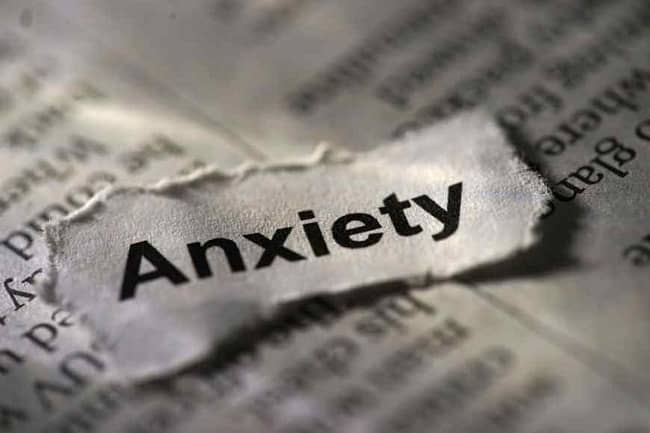
These healthy levels of anxiety motivate us to do something in our interest.
However, constantly feeling anxious may suffer negative consequences, such as lack of sleep, poor eating habits, and mood swings. In addition, anxiety can be a normal response to a stressor or threat, such as a phobia.
However, when an anxious person or child faces a particular stimulus, their anxiety levels increase dramatically.
Usual Anxiety Symptoms
Some symptoms of anxiety include:
- Feelings of apprehension
- Nervousness
- Trembling
- Sweating
- Nausea
- Difficulty swallowing
- Difficulty breathing
- Excessive worrying
- Fear
- Panic
- Obsessions
Causes of Anxiety
There are several known causes of anxiety.
The main reasons include poor coping with stress, lack of sleep, and negative thinking.
Other common causes of anxiety are a lack of exercise, overconsumption of caffeine and alcohol, and changes in eating patterns.
Furthermore, any traumatic experience may cause a person to develop an anxiety disorder.
How Does Anxiety Affect Health?
When anxious, our body works extra hard and consumes extra energy (stored glucose).
In addition, the stress hormones released during the nervous reaction can put an additional burden on the adrenal and thyroid glands.
As a result, people who suffer from anxiety may also develop a loss of appetite, gastrointestinal distress, or inflammation of the stomach lining.
Furthermore, abnormal levels of stress hormones in the body can result in high blood pressure, an increased risk for heart disease, weight gain, depression, and severe illness.
If left untreated, anxiety disorders can lead to:
- Depression
- Inability to concentrate
- Social isolation
- Poor memory
- Over excitement or over stimulation
- Drug or alcohol addiction
- Personality changes (becoming defensive or defensive)
- Stress-related headaches and stomach illnesses (stomach ulcer)
- Heart attack and stroke
10 Home Remedies For Stress and Anxiety
If you want instant relief from stress, anxiety, and other emotional obstacles, you need quick relief, right?
So here are some instant relief remedies for you:
#1 Stay Active
When you are under tension or stress, your body goes into a "fight or flight" mode.

As a result of this mode, your heartbeat increases, and your rate doubles. To keep yourself active, take short walks - this will keep your heart pumping and your mind clear.
Keeping your heart rate up will also help your brain to think more clearly.
Also, some physical activity can release all the extra energy in your head and body and let you out in case you feel overwhelmed.
#2 Watch Your Diet
When you feel stressed, your mind also needs proper nutrition.
Regularly eating small meals throughout the day can help reduce your stress levels.
Also, ensure you eat a healthy and balanced diet to keep your body healthy.
Eating healthy can release chemicals into your body that help reduce anxiety.
Vitamin B6, for example, can help your stress hormones!
So make sure you get the recommended dosage of vitamin B6, 1.5 - 3 mg daily.
Also, you can eat almonds (which contain vitamin B6) to help reduce anxiety!
#3 Say No to Alcohol
We all like to think that taking a drink will help take the edge off.
Well, this is tricky, but alcohol is a natural sedative.
But can we really afford to relax with alcohol?

Now think about it, alcohol can lower your inhibitions and impair your thinking capabilities.
So how can this help you deal with the problems causing you stress in the first place?
Drinking alcohol won't solve your problems, but it will make those problems harder to deal with.
Also, alcohol will make you tired and sleepy, leading to more sleep problems. I am not saying you can't have a drink.
I am saying that drinking when you have stress and anxiety is not the answer.
In most cases, it will lead to more issues and cause more stress and anxiety.
#4 Cut Back on The Smoking
Reaching for a smoke in a stressful situation is one of the worst things you can do to yourself.
The nicotine in cigarettes is a stimulant to the nervous system.

This can cause a "high" feeling and relieve tension and stress for a short period.
However, this also causes depression later because nicotine is a depressant.
There is research that shows smokers are more depressed than non-smokers.
This is down to the fact that nicotine interferes with your body's own natural ability to fight depression.
So by resorting to smoking when you're stressed, you're simply worsening your depression, stress, and anxiety over time.
It may seem like you are feeling better because nicotine makes you less anxious, but this is short-lived.
So when thinking in the long term, smoking for stress relief is a bad idea!
#5 Limit Your Caffeine
Stress and anxiety don't mix well with caffeine.
Caffeine is a stimulant that can cause tension and anxiety symptoms to worsen.
Caffeine blocks your brain's chemical adenosine, which causes drowsiness and makes the brain relax.

But when caffeine is consumed in large quantities, it stops adenosine from doing its job and allows your brain to continue thinking about problems causing you stress.
If you want to relieve stress quickly, drink a cup of herbal tea (chamomile is excellent for reducing anxiety).
Herbal teas are decaffeinated, and although they contain caffeine, it is naturally derived from herbs and other natural ingredients.
Keep in mind when it comes to caffeine, moderation is the key.
Small amounts of caffeine, like one to two cups daily, are perfectly okay.
#6 Get a Good Nights Sleep
A good night's sleep can really help reduce stress and anxiety.
Many people don't realize that lack of sleep can cause anxiety.
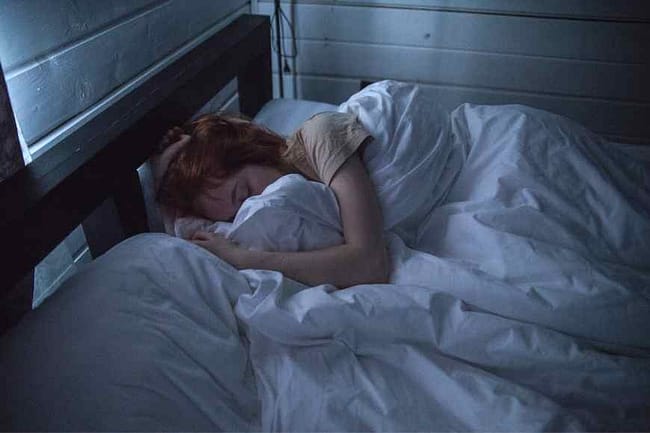
A lack of sleep can stop you from functioning correctly mentally and make you feel even more anxious the next day.
Try to make sure you go to bed before 10:00 pm every night.
Getting enough sleep can also help boost your mood and make you feel better.
Not sleeping enough can impair your thinking, weaken your immune system and make you cranky, which is a recipe for anxiety!
Some tips to help you get better sleep are:
- You should only sleep at night when you're tired
- Not watching television or reading in bed
- In bed, avoid using your phone, tablet, or computer
- If you can't sleep, don't toss and turn in your bed or go to another room
- Avoiding caffeine, heavy meals, and nicotine before going to bed
- Keeping your room cool and dark
- Before going to bed, write down your concerns
- Sleeping at the same time every night
#7 Stay Positive and Try to Avoid Negative Thinking
When faced with stress and anxiety, it's often hard to keep positive and hopeful thoughts in your head.
If you think about things that are making you feel anxious or if you worry about things you can't control, this will only make stress and anxiety worse.
Instead, try to relax and think positive thoughts every day. This can help you deal with stressful situations better.
Also, keep a journal by your bed and write in it every night before bed.
Write your thoughts or concerns down, so they're out of your head and on paper.
This can help you sort out problems and come up with solutions.
Most importantly, try to challenge your negative and irrational thoughts.
#8 Drink Water Regularly
Water has many healthy uses.
Drinking water regularly can help flush out excess salts in your body, reducing your stress levels.
Water also keeps your body hydrated!
Your brain needs water to function properly!
Try to drink 8 glasses of water daily to stay properly hydrated.
This will keep your brain functioning properly and will reduce your stress levels.
#9 Use Stress Management & Relaxation Techniques
If you have stress and anxiety, then learning a few stress management and relaxation techniques can significantly help you.
Meditation is one of the best ways to reflect on your thoughts and feelings and help reduce stress and improve concentration.
I recommend practicing meditation every day for 10 minutes.
There are a ton of different meditation and relaxation techniques you can try! In addition, relaxation techniques like hot baths, meditation, massage, and breathing exercises can help make your body feel more at ease and relaxed.
If you want to learn how to Manage Your Stress and Conquer Anxiety The Easiest Way, check out our latest product, Stress Relieving Mantra.
It will guide and show you how to reduce your stress levels quickly and easily.
It's the price of a pizza, so it won't break the bank.
#10 Talk To Someone
Sometimes we are reluctant to talk about their stress and anxiety issues with their family and friends.
However, talking about your problems and worries with people who care can help you feel better.
Talking to someone about the problems causing you anxiety can help you brainstorm solutions and make the process seem more bearable.
Your family and friends can help you get through difficult situations that they are familiar with too.
That's why getting advice and help is so important.
To Sum it Up
The longer you have stress and anxiety, the harder it is to deal with it.
Remember, you are not alone. Almost everyone deals with stress and anxiety.
If you follow these simple steps, I am sure your stress and anxiety can be reduced, and your quality of life can improve.
If you suffer from stress and anxiety, don't ignore them. Seek help!

